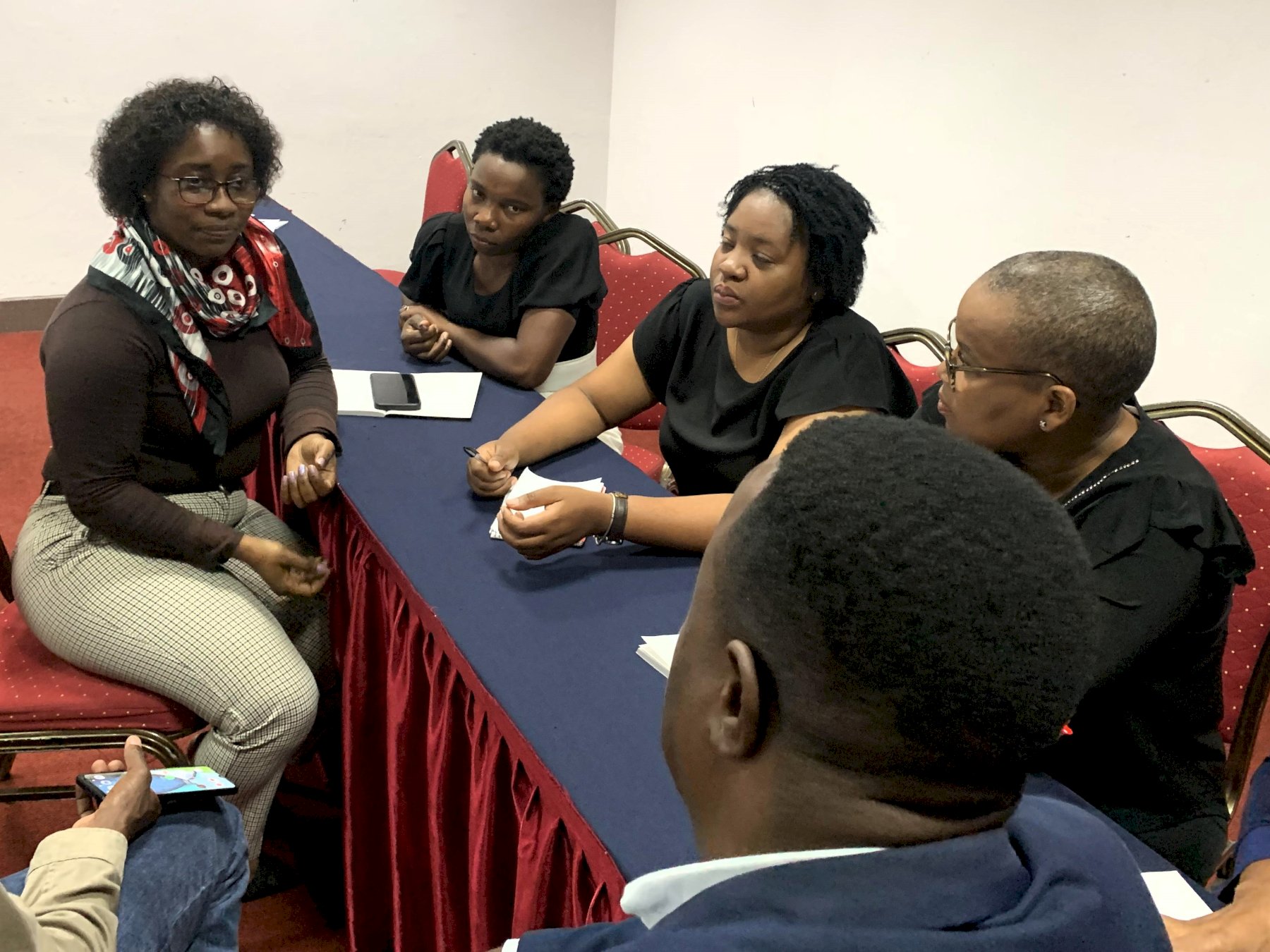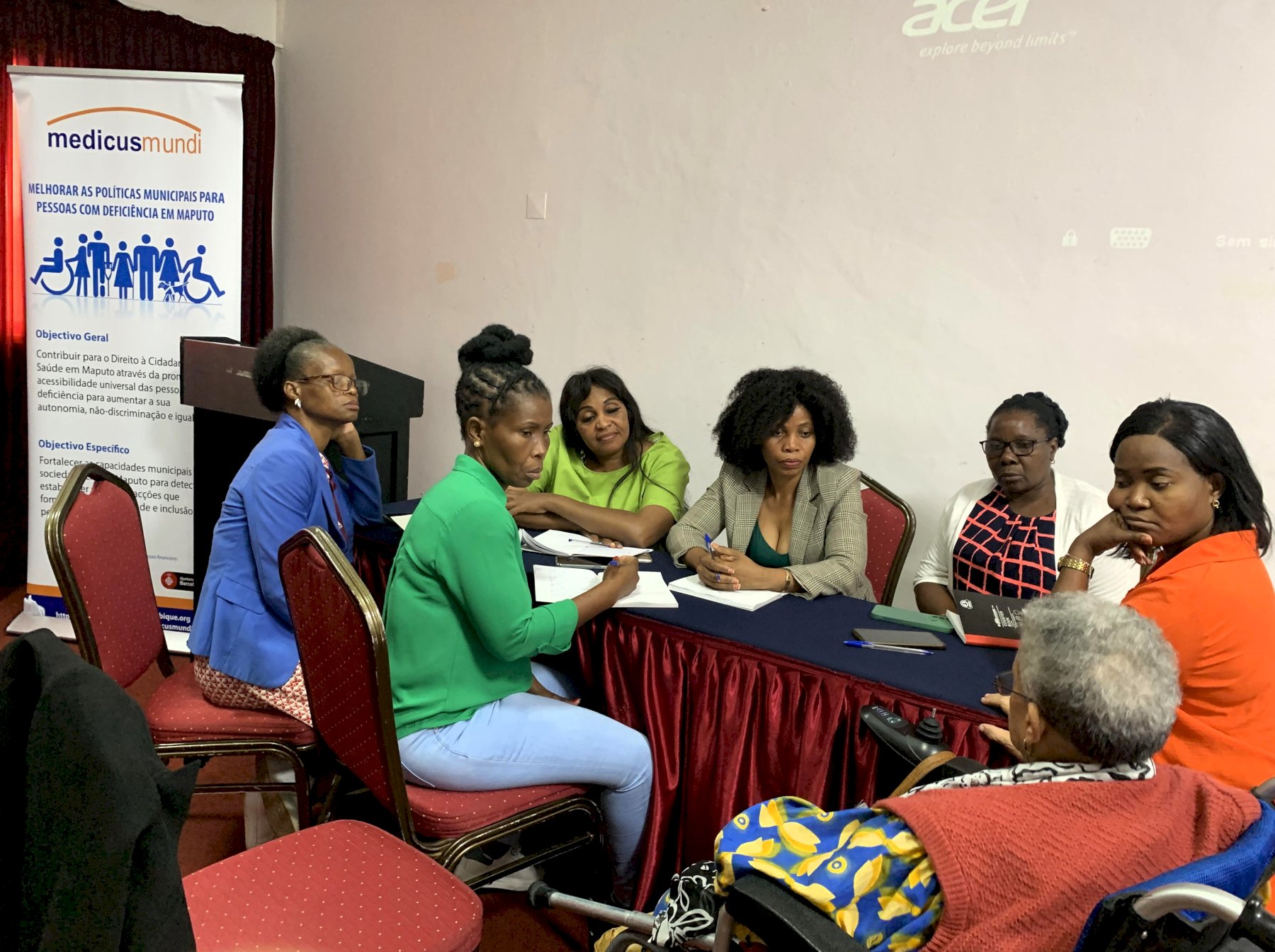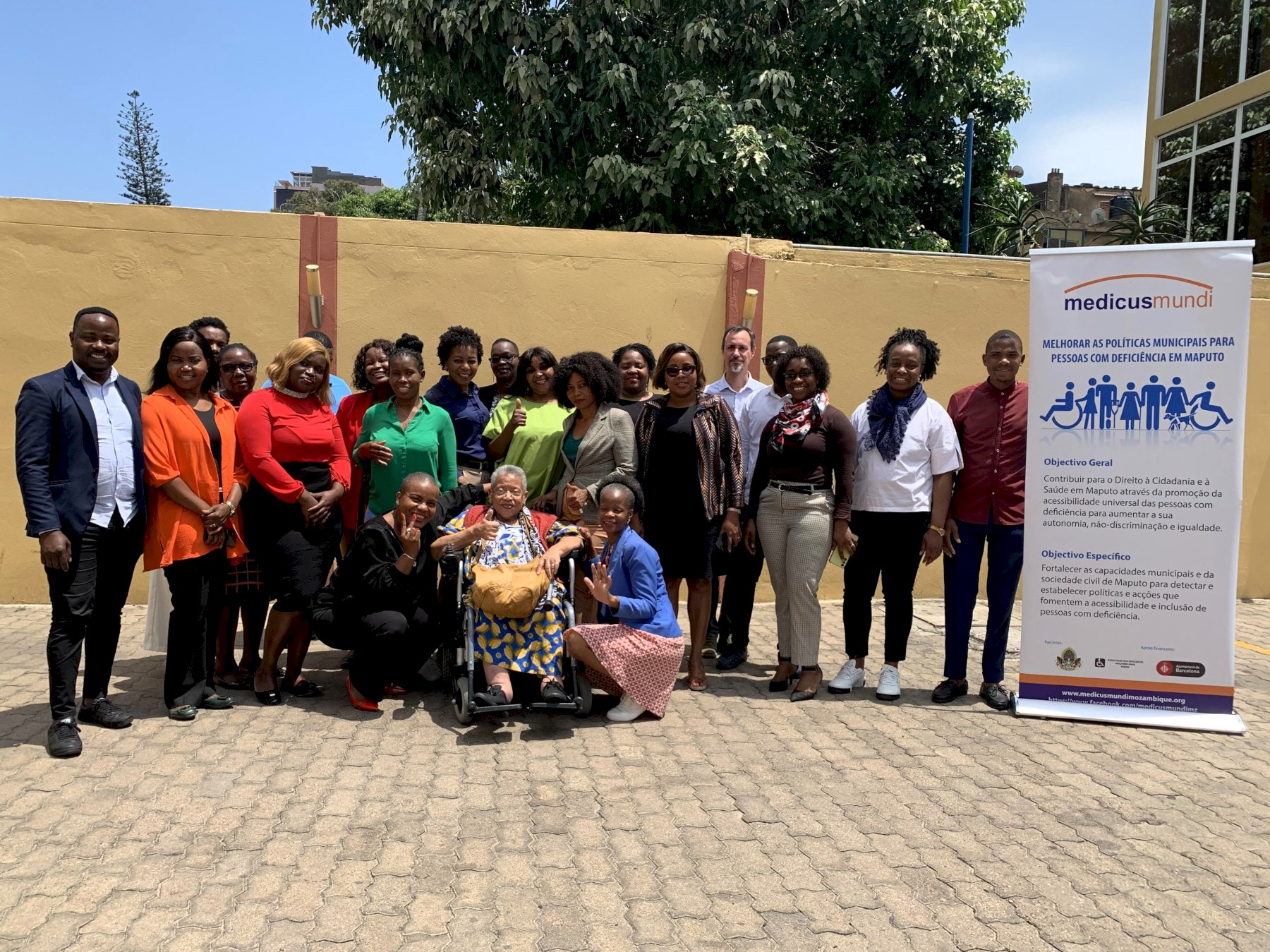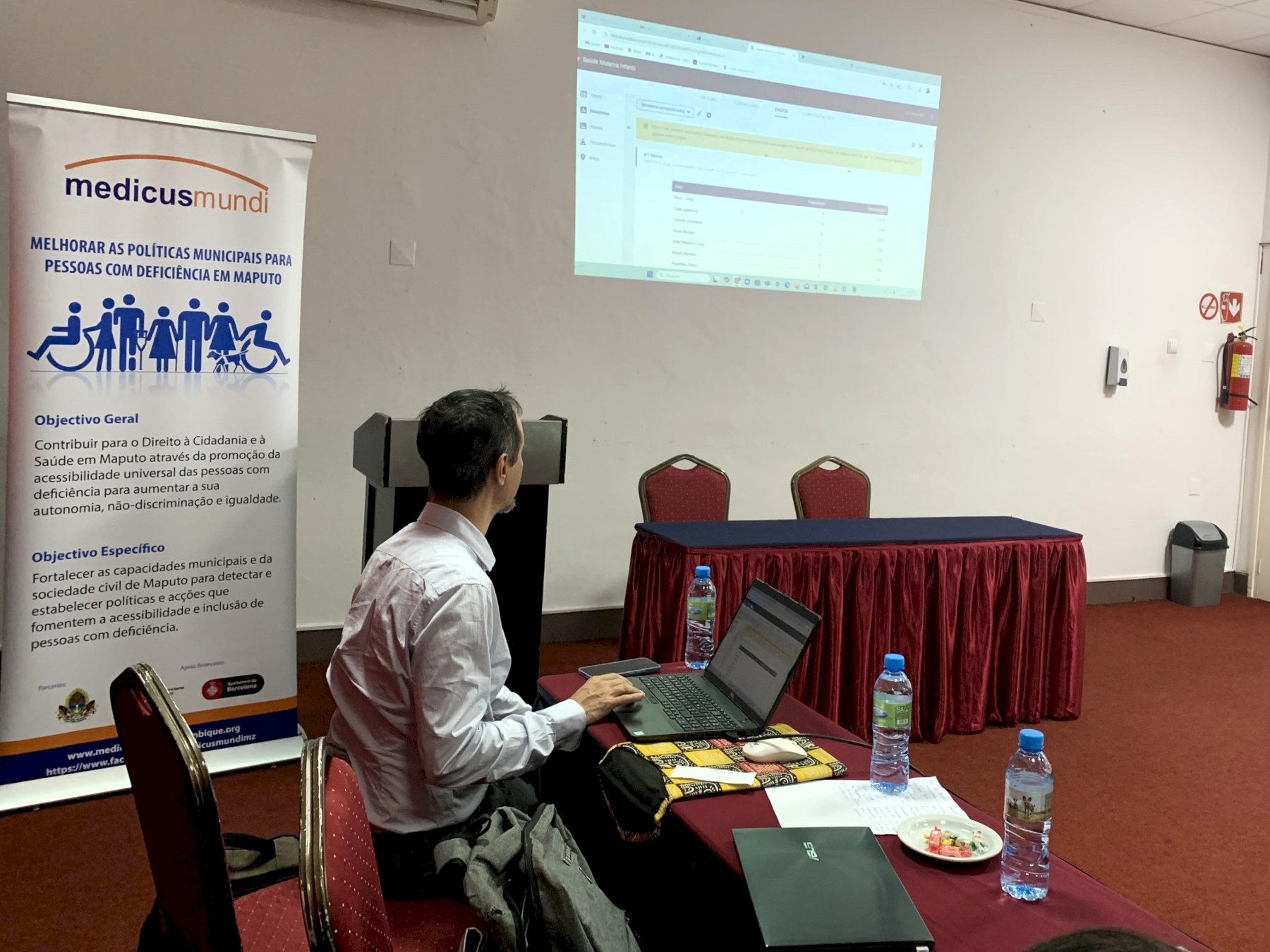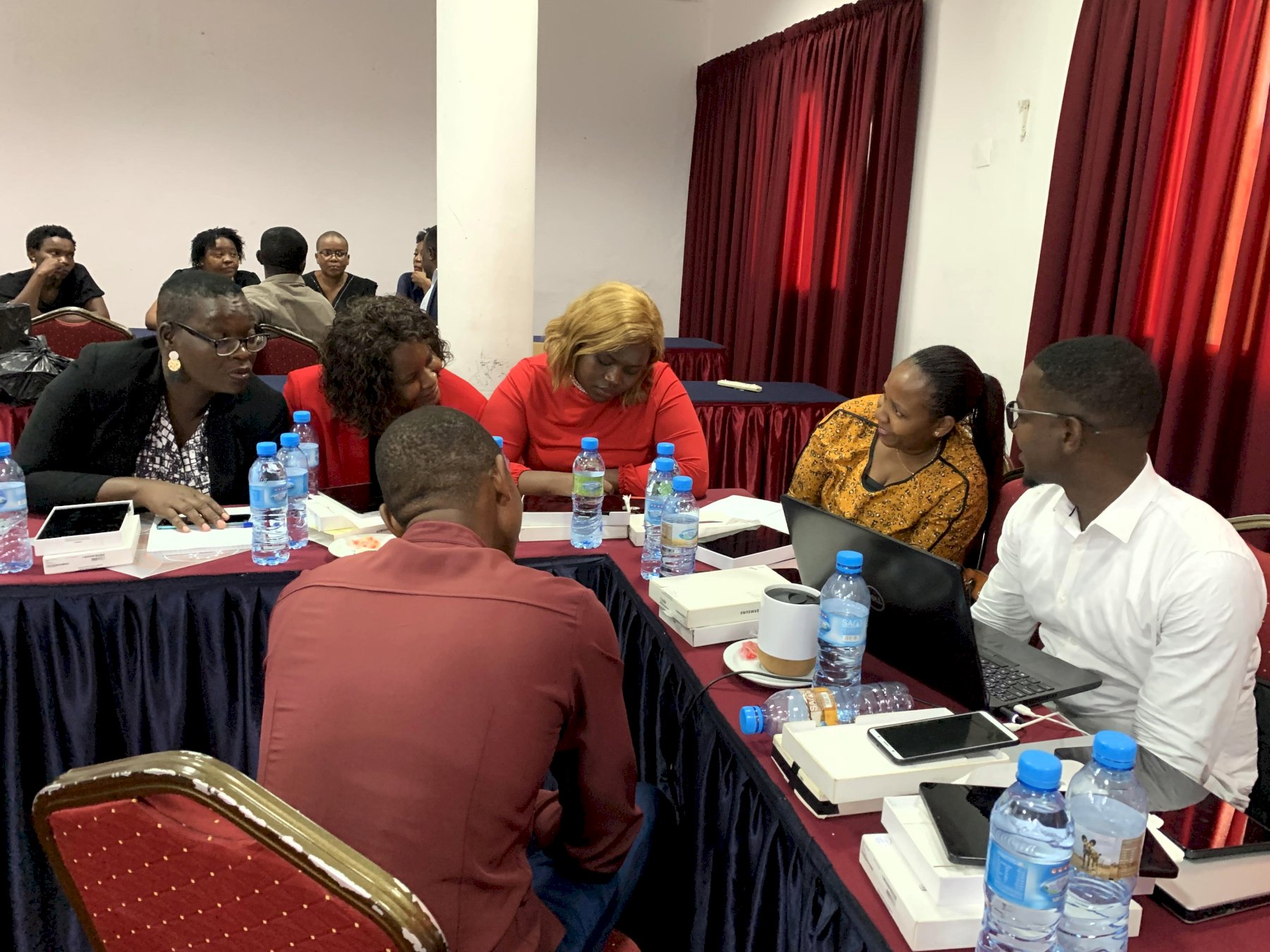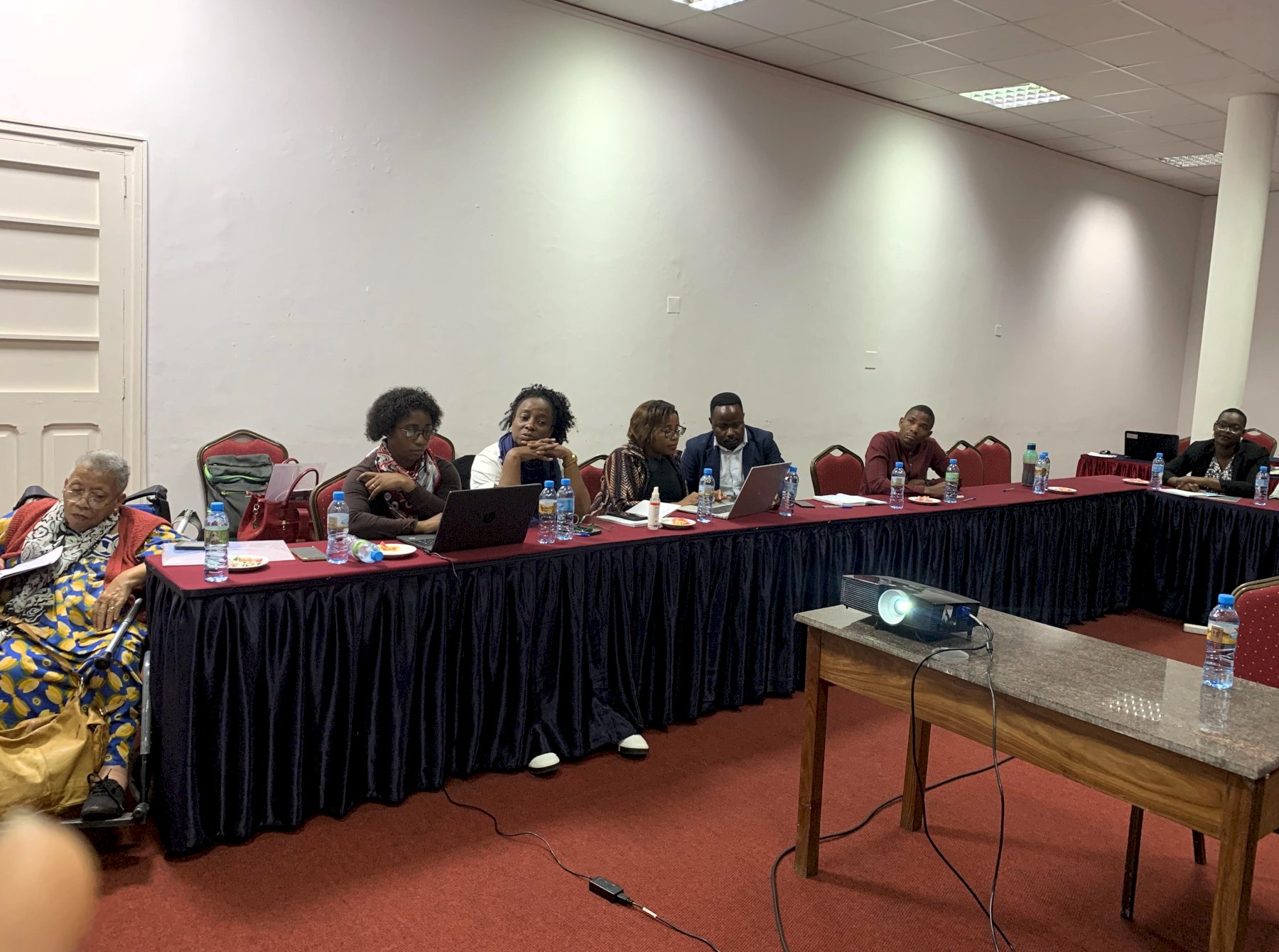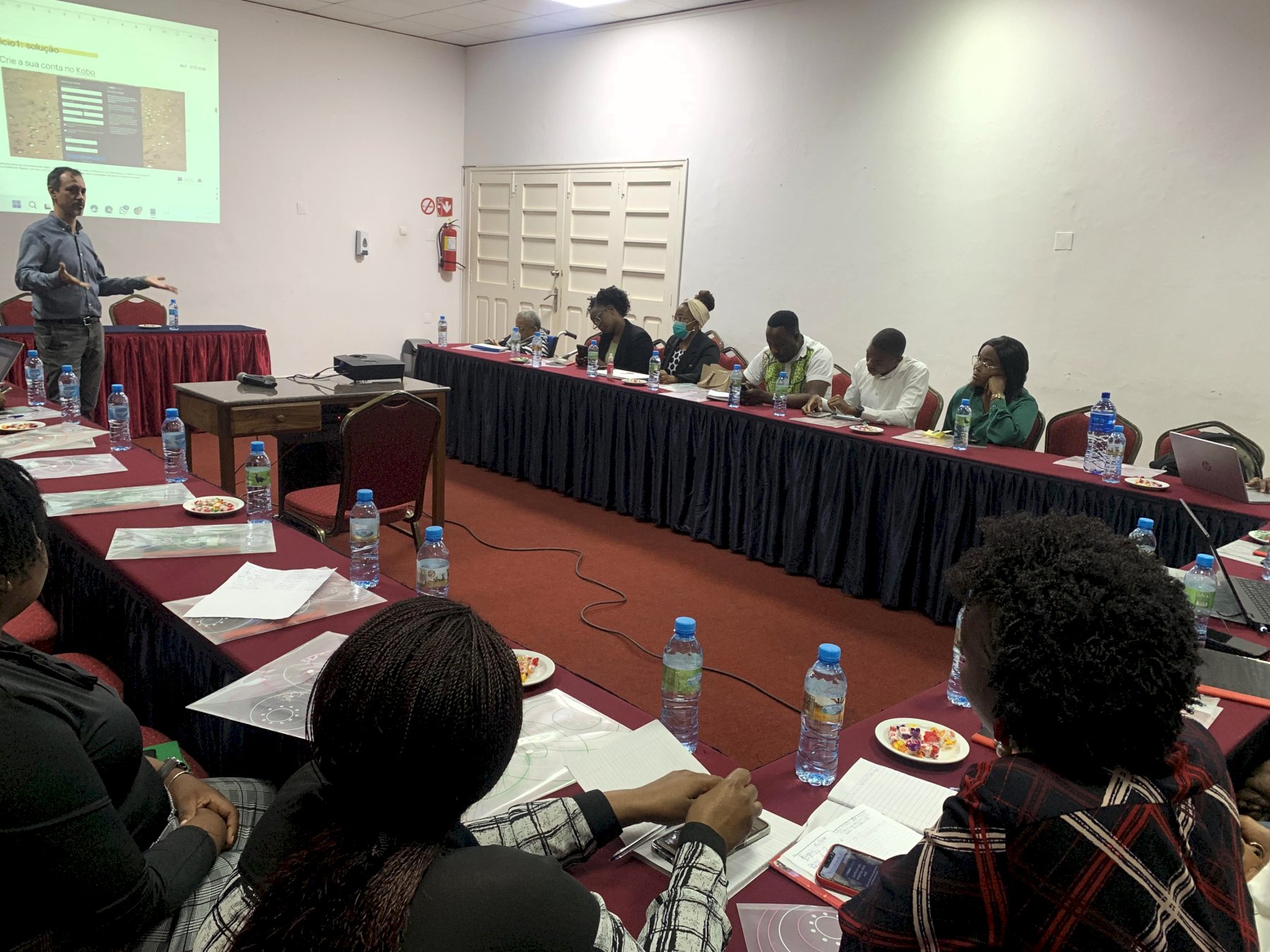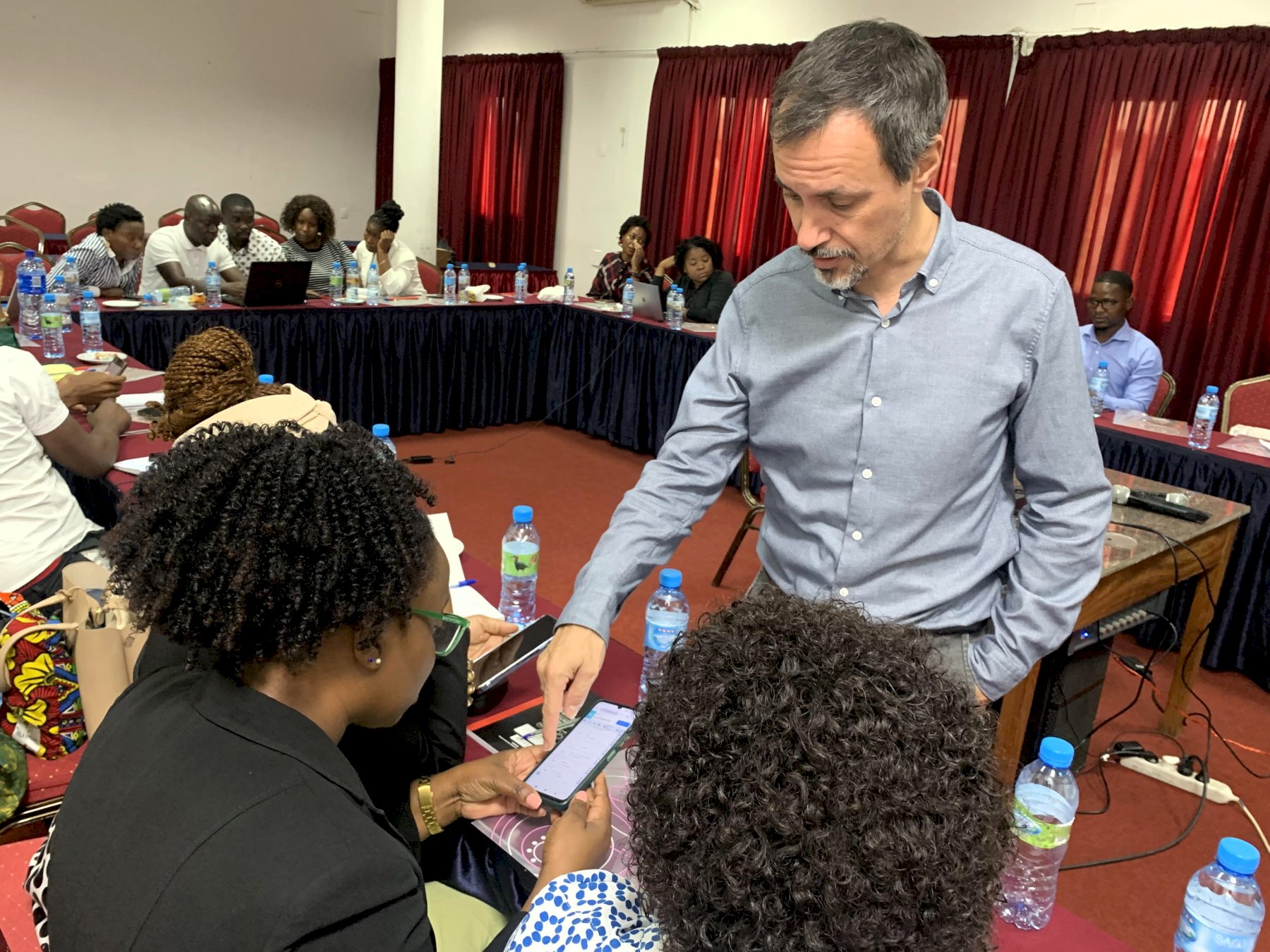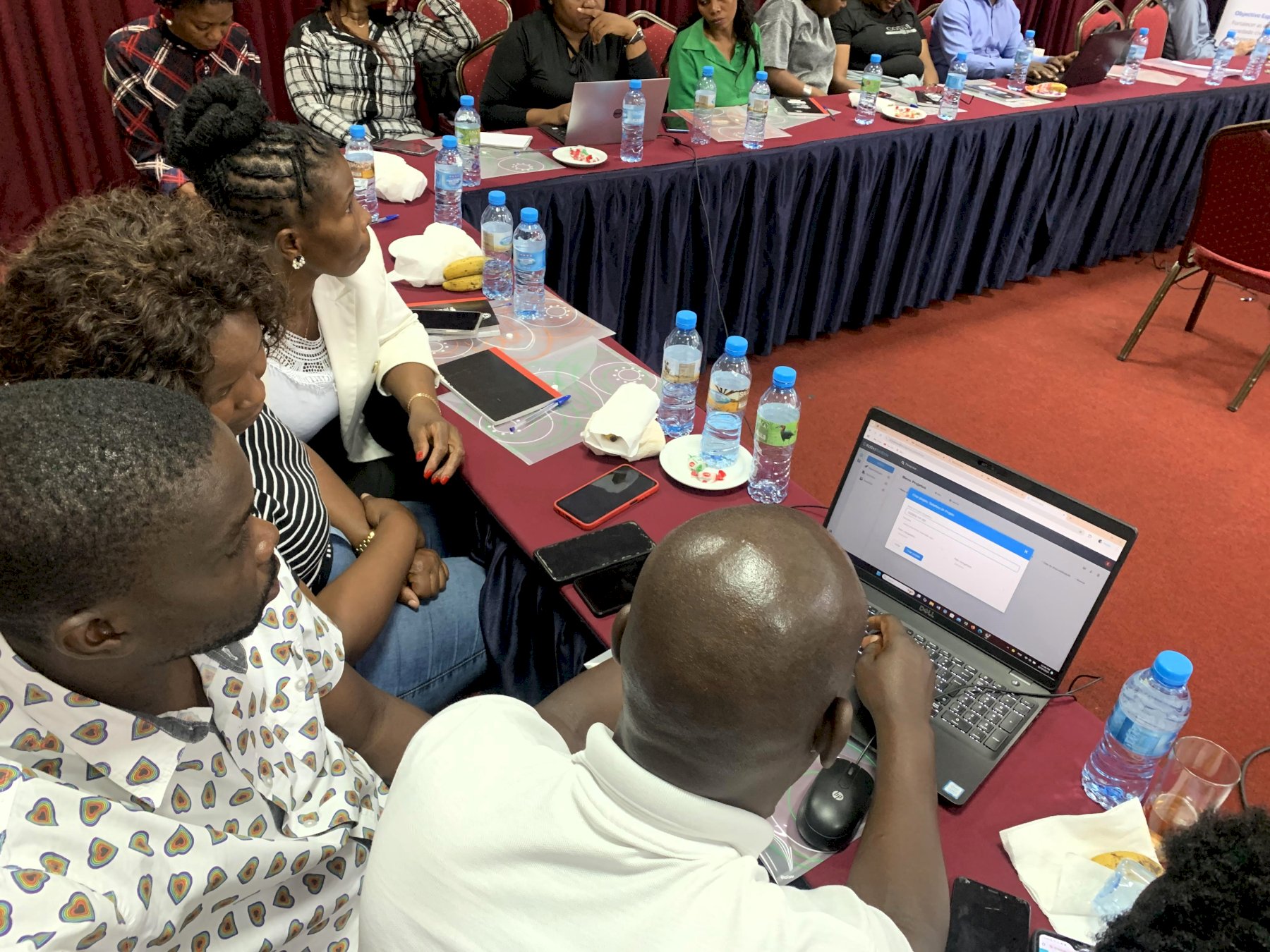30 health technicians from the city of Maputo trained in KoBo Toolbox
On October 29, 30 and 31, 2024, around 30 health technicians and public service managers from the Nlhamankulu Municipal District, in the city of Maputo, were trained in the use of the KoBo Toolbox, within the framework of the project “Improving Municipal Policies for People with Disabilities in Maputo”, funded by the Municipality of Barcelona.
Social Determinants of Health
KoBo Toolbox allows you to collect data, monitor it and evaluate it in different circumstances.
After the training of community activists carried out in the first days of July this year, it was time to train health technicians and public service managers in the acquisition of knowledge related to the use of the KoBo Toolbox, again with the support of specialist Fernando de Los Ríos.
Health professionals, by working directly with users of health units, have the skills to collect data more accurately from people with disabilities who access health facilities. Thus, with this training, health professionals will also be able to learn how to collect data using the KoBo Toolbox, as well as how to clean and prepare the same data for analysis, using Excel and Power Query. And finally, they also learned how to perform data analysis by creating visual elements (tables, maps and graphs), using specific software available through a tablet provided by the project.
With the data collection carried out by community activists in neighbourhoods and homes of people with disabilities, it was possible to identify the main barriers faced by this target group, as well as their families, in accessing health services. This survey provides important information on the key aspects of each type of disability and on the conditions of care and response in each health unit within the Nlhamakulu Municipal District, in the city of Maputo.
For Gilda Samuel, Director of the Municipal Social Action Service of the Maputo City Council, said that: “the training was very important, and it was gratifying to see health professionals engaged and contributing ideas on what they should do to generate information, which will contribute to improvements in municipal policies for people with disabilities.”
For her part, Otilinda Camacho, a doctor at the Xipamanine Health Centre, said that the training was useful and that it provided new potential to a tool applicable in different situations. “KoBo Toolbox allows you to collect data, monitor it and evaluate it in different circumstances. It also allows you to structure/develop forms and responses to surveys and share them with other health actors in real time.”
The training also served to plan the creation of a form that will allow information to be obtained directly from health units at the time of triage. This information will complement the data obtained in the interviews carried out in the neighbourhoods.
By analysing all this information, health authorities will be able to identify areas for improvement, both in the health sector itself (improving accessibility in health centres, preparing professionals to care for people with disabilities), and in other sectors (improving adapted transportation, among others).
This activity is part of the project “Improving municipal policies for people with disabilities in Maputo”, funded by the Municipality of Barcelona and implemented by medicusmundi, in collaboration with the Maputo Municipal Council (CMM) and the Association of People with Disabilities of Mozambique (ADEMO).

